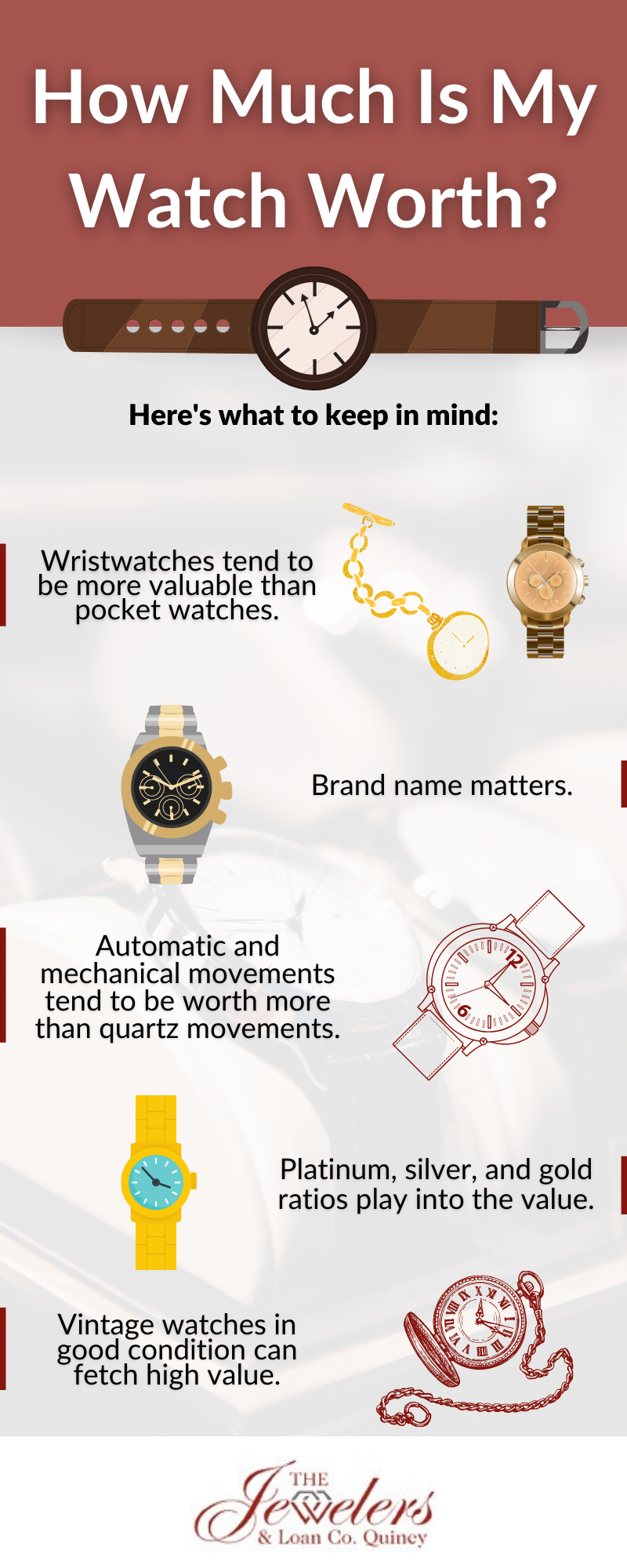In general, wristwatches are one of the most valuable types of watch. Vintage and luxury watches are commonly passed down from generation to generation, but they also tend to show up at trade shows, antique shops, and thrift stores. If you’ve come to possess a watch that you didn’t buy, you’re probably wondering, “how much is my watch worth?”
At The Jewelers and Loan Co., we aim to make the watch appraisal process very simple and straightforward. In this guide, you’ll learn a bit about how watches are appraised and what factors determine their value.
What Factors Determine the Value of a Watch?
Several different factors help determine the value of a watch. Unfortunately, it’s not as simple as glancing at the item — and only a qualified watch appraiser can give you a good idea of how much your watch is worth. If you want a ballpark estimate of how much your watch is worth, you can always research the brand and look for images for similar timepieces that have sold, or are otherwise not actively for sale, for the best indication of value.

In-person appraisals are the best way to get an exact appraisal value for your watch. Some of the factors that determine the value of a watch include:
- Is it a wristwatch or a pocket watch? Wristwatches and pocket watches are anatomically different. When determining the value of a pocket watch, movement, case material, and quality come into play. For wristwatches, movement, condition, material, brand, and other factors contribute to the value.
- Is there a visible brand name? Cartier, Rolex, Jaeger-LeCoultre, Patek Phillippe, IWC, Audemars Piguet, Panerai, and Breitling are the luxury watch brands that retain their value the best. Other brand names hold value as well, so don’t be afraid to bring a lesser-known name into our shop.
- What is the material composition? Stainless steel, platinum, gold-filled, and various karat purities of gold are common materials for watches. The daily spot price of platinum, sterling silver, and gold changes daily, so it’s essential to do your research before you have your timepiece appraised.
- What is the movement? Automatic movement watches are among the most expensive types of watches. Luxury brands tend to favor automatic movement because these watches don’t have a finite lifespan. Mechanical watches are all watches that tick. These watches are meant to be extremely durable and hold up to the stress of everyday life. As such, mechanical watches tend to hold their value well.
- What is the age and condition of your watch? If your watch hasn’t been regularly serviced, it may be in poor condition. Vintage watches in mint condition are among the highest value watches on the market. Before you decide to have your watch appraised, it’s a good idea to have it professionally serviced and cleaned so you can assess the condition.
For more information about the watch appraisal process and our other services, don’t hesitate to reach out today!
